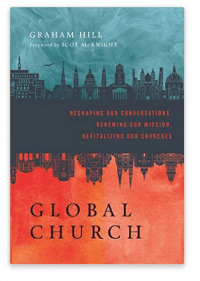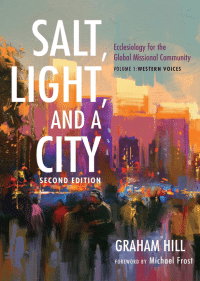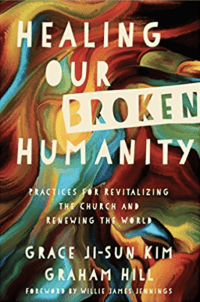Cut the excuses – Eradicate violence against women in the church

Global research into domestic and sexual violence reveals some shocking and intolerable facts. 1 in 3 women and girls experience violence in their lifetime. In one decade long study across 87 countries, 1 in 5 women said they had experienced physical and/or sexual violence by an intimate partner in the 12 months prior to taking their survey. “In 2012, almost half of all women who were victims of intentional homicide worldwide were killed by an intimate partner or family member, compared to 6 per cent of male victims.”
In another study of women between 15 and 49 years of age in 45 countries, “only just over half (52 per cent) of women who are married or in a relationship make their own decisions about consensual sexual relations and use of contraceptives and health services.”
In a recent heart wrenching report by Julia Baird and Hayley Gleeson, clergy wives tell their stories about domestic violence. They share their experiences of rape, humiliation, and fear. They tell of being controlled by their pastor husbands, and being ignored and silenced by churches.[1]
The hashtag #ChurchToo has been gaining momentum on social media. Women (and men) are now using that hashtag to share stories of “being groped, raped, coerced and disbelieved by parishioners and pastors in church communities.”[2]
Do not assume that sexual abuse isn’t prevalent in christian organizations and churches. A reckoning is coming. ~ Jonathan Merritt
Christian leaders and churches need to cut the excuses and denials, listen to the survivors of domestic abuse, and act to eliminate violence against women. This can only happen when we confront the way power, theology, sexism and patriarchy encourage sexual and other forms of violence against women.
How Do We Confront and Eliminate Violence Against Women in Our Churches?
Here are things we can choose to do, right now:
Listen hard to women and children, and believe them.
Adopt a posture of humility, and an openness to hear how the Spirit is speaking to us in the voices of the victims. How is God calling us to change, and to confront the practices, systems, cultures, theologies, and opinions that have increased the suffering of women and children?
Recognise that we have a serious problem with domestic and sexual violence in churches, Christian homes, and society. Stop acting as though no problem exists, and stop covering up and ignoring abuse.
Stop clutching at simplistic tools and clichés, that ultimately wound and silence victims, and that serve to further entrench violence against women (“forgive others,” “submit to your husband,” “read more Scripture,” “pray for your husband,” and so on).
Repent of the ways we (and our institutions and theologies) have excused, validated, or colluded with abusers.
Confront patriarchal, oppressive, and abusive interpersonal systems, theological traditions, and organisational cultures.
Address the deeper issues of power and control that are at the heart of domestic and sexual violence (and that are at the heart of most forms of abuse in church and society). Remorse and forgiveness aren’t going to lead to lasting change, unless we seek a thorough change in how power, respect, equality, control, and honour work in relationships and the church. Sexism and patriarchy encourage violence against women. It’s time we also examined how the doctrine of male headship is used to support and excuse violence.
Don’t let abusers charm you, deceive you, and evade the consequences of their actions.
Refuse to privilege clerical privacy, power, opinions, and dignity, and choose to honour and hear the voices of women, children, the laity, and the vulnerable.
Help victims regain the confidence that they matter, and are valuable and precious – since they matter, their experience and voice and dignity matters, and any offence committed against them matters and will be dealt with.
Stop rewarding narcissistic, egoistical, controlling behaviours and leadership styles in church and society – it leads to similar abuse in the home.
Address and dismantle the unhealthy use and abuse of power in sexual, pastoral, marital, and other relationships.
Acknowledge when ideas like forgiveness and grace and submission are being warped in ways that damage and silence victims, and are letting perpetrators off the hook.
Don’t excuse the actions and attitudes of abusers, and don’t excuse the environments and views that encourage and support them.
Encourage people to think for themselves, establish appropriate boundaries, practice healthy assertiveness, and say “no.”
Stop seeking quick solutions and hasty absolutions – lasting, true, Christ-honouring change never occurs that way.
Confront the lie that sexual availability is a female’s (and especially a wife’s) responsibility.
Respect a woman’s right to bodily and personal integrity and safety.
Practice reconciliation that seeks forgiveness and healing, but also apology, accountability, restitution, truth-telling, and justice.
Welcome public scrutiny and genuine accountability. Stop acting like public scrutiny is persecution; it’s not persecution, it’s a chance to embrace deeper integrity, transparency, truthfulness, and witness.
Make discussion about abuse – and action to prevent and deal with it – a priority.
See how domestic and sexual violence affects victims – guilt, shame, spiritual trauma, homelessness, poverty, PTSD, isolation, and more – and respond compassionately, generously, and justly.
As my tribe (the Australian Baptist Churches) say, we must seek to be churches and communities that:
- are safe and secure, where the voices and experiences of women, children, elderly and other vulnerable people are valued
- provide practical help for people experiencing family violence
- empower women to speak, serve and lead in response to God’s call on their lives
- understand the broader influences in society that lead to violence, and act to bring about change
Rigorously evaluate the fruit of our theologies, practices, and language. And once we take action to change, we should also rigorously evaluate the effectiveness of our programs and responses.
How Do We Confront Sexism and the Patriarchy in Our Churches?
Violence against women grows in an environment of sexism, patriarchy, and unhealthy use of spiritual and religious power. As my friend Michael Frost says, “don’t just say sorry, smash the patriarchy!”[3]
So how do we deal with sexism and oppressive patriarchal systems?
We can choose to acknowledge and confront the way power, theology, sexism and patriarchy encourage sexual and other forms of violence against women in Christian families and in the church.
We can own how “submit to your husbands” and the doctrine of male headship is used to justify and excuse violence against women.
We can examine the ways we have harboured sexism in our own lives and families and churches.
We can consider how patriarchal cultures have silenced and oppressed women and girls. We can repent and change and rip these things out by the roots.
We can refuse to ignore or minimize or disregard sexist views and remarks.
We can demand an apology from those who express such opinions. We can demand a commitment to relinquish these views, and never make such remarks again.
We can speak up whenever public figures make derogatory statements about women and girls, or when they seek to silence them. This is a form of violence!
We can question and condemn all sexist attitudes and remarks (no matter who they come from—colleague, classmate, teacher, friend, family member, politician, or whomever).
We can dismantle dualistic and gendered thinking about roles and capabilities.
We can stop celebrating and perpetuating dysfunctional and damaging views of “manhood” and “femininity” (e.g. comments like “boys will be boys”, “she’s not very feminine”, “be a real man”, macho stereotypes, and so on).
We can encourage men to speak up and challenge other men on patriarchal and sexist ideas and actions.
We can challenge, confront, and condemn sexism and patriarchal systems in all their forms.
We can create church cultures that respect and value and listen to women and girls, and treat them with the dignity and respect they deserve.
We can stop blaming women, and acting like sexual and domestic violence is a “women’s issue.” Patriarchy, sexism, and violence against women impacts everyone, at all levels of society – women, men, and children. Men and women must stand together (as part of communities that also stand together) to eliminate violence against women.
We can live blameless lives (both individually and in Christian community), that glorify and witness to Jesus Christ, and that stand in contrast the destructive, demeaning, derogatory, and divisive spirits of this age.
We can cut all excuses, and repent and change and follow the way of Christ.
That is what we can and must do, so that we eradicate violence against women and girls in Christian families, in our churches, and in our society.
See also
An apology to victims of domestic violence in the church
6 ways to empower and release more female leaders
#MeToo – Stop asking women & girls to fix the problem! Men, #MeToo is on us
9 ways to amplify the voices & honor the gifts of women
Churches and their leaders must confront domestic violence
Women are the heartbeat of living faith
It’s Time to Stop Organizing All White Male Panels and Conferences
7 inspiring women: A 7-part series on inspiring female Christian leaders and thinkers
Accessing Resources and Support
Here are some resources for churches:
UN Women resources for ending violence against women
SAFER: A domestic violence resource for churches
Restored Relationships (free pack for churches on ending domestic abuse)
First Man Standing (men standing up to violence against women)
The United States National Domestic Violence Hotlines
BaptistCare Resources on Family and Domestic Violence
Time to Listen (forum on domestic violence in the church) – recording 1
Time to Listen (forum on domestic violence in the church) – recording 2
Australian Government Resources
United States Family and Domestic Violence Support Services
National Domestic Violence Hotline:
1-800-799-SAFE (7233)
1-800-787-3224 (TTY)
National Sexual Assault Hotline:
1-800-656-HOPE (4673)
National Teen Dating Abuse Helpline:
1-866-331-9474
1-866-331-8453 (TTY)
National Victim of Crime Hotline:
1-855-4-VICTIM
(855-484-2846)
Australian Family and Domestic Violence Support Services
1800 Respect National Helpline:
1800 737 732
1800 811 811
1300 766 491
Lifeline (24-hour crisis line):
131 114
1300 364 277
Graham Hill
Graham Hill (PhD) is the Provost of Morling College in Sydney, Australia, and the Founding Director of The GlobalChurch Project – www.theglobalchurchproject.com. He’s the author of “GlobalChurch: Reshaping Our Conversations, Renewing Our Mission, Revitalizing Our Churches” (IVP, 2016), and “Salt, Light, and a City, Second Edition: Ecclesiology for the Global Missional Community: Volume 1, Western Voices (Cascade, 2017).”
© 2017 All rights reserved.
Copying and republishing this article on other Web sites, or in any other place, without written permission is prohibited.
Want to be mentored?
Books
Don’t forget to buy Graham Hill’s books:
- Global Church
- Salt, Light, and a City (second edition)
- Healing Our Broken Humanity



Comments: We’d love to hear your comments and reflections on this blog post!





